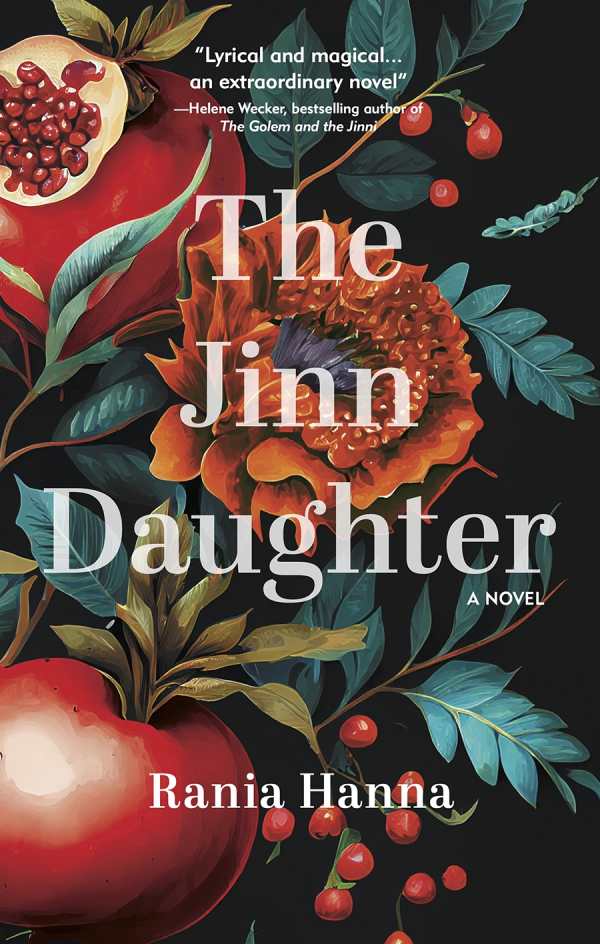The Jinn Daughter
Death is owed a debt, and a mother and daughter face underworld threats, in Rania Hanna’s lush fantasy novel The Jinn Daughter.
Nadine, a jinn, consumes the souls of the dead, which take the form of pomegranate seeds. She tells their stories, thus helping them to reach their destination. This ritual task, however, didn’t extend to her dead husband Illyas: she keeps him in a purgatorial state as an act of mercy. Meanwhile, their half-jinn teenage daughter, Layala, is taunted by the townspeople, in love—and unaware of the full story of her heritage.
Told with powerful maternal concern, the novel unfolds through Nadine’s observations and magic use of a clay bird that allows her to see what’s happening with Layala. Threats necessitate that she seek shelter with Layala’s grandfather, a sheik. When the seeds stop appearing and death pays a visit to call in a favor, Nadine senses an upset in the balance between worlds; ghouls have been unleashed.
Interspersed with fables that reveal some of Nadine’s past and the stories of the dead, this is a vibrant novel. Nadine sets about resolving her problems in a fascinating way, facing conundrums. Meanwhile, her mother-daughter differences with Layala seem irreconcilable. Nadine feels ferocious desperation to reverse fate, leading to misdeeds, while Layala herself is determined to accept her role; in time, Nadine comes to the realization that children have to be allowed to grow into their own choices.
There’s a difference between love and manipulation in the provocative fantasy novel The Jinn Daughter, in which a mother goes to great lengths to rescue her child from death.
Reviewed by
Karen Rigby
Disclosure: This article is not an endorsement, but a review. The publisher of this book provided free copies of the book to have their book reviewed by a professional reviewer. No fee was paid by the publisher for this review. Foreword Reviews only recommends books that we love. Foreword Magazine, Inc. is disclosing this in accordance with the Federal Trade Commission’s 16 CFR, Part 255.

